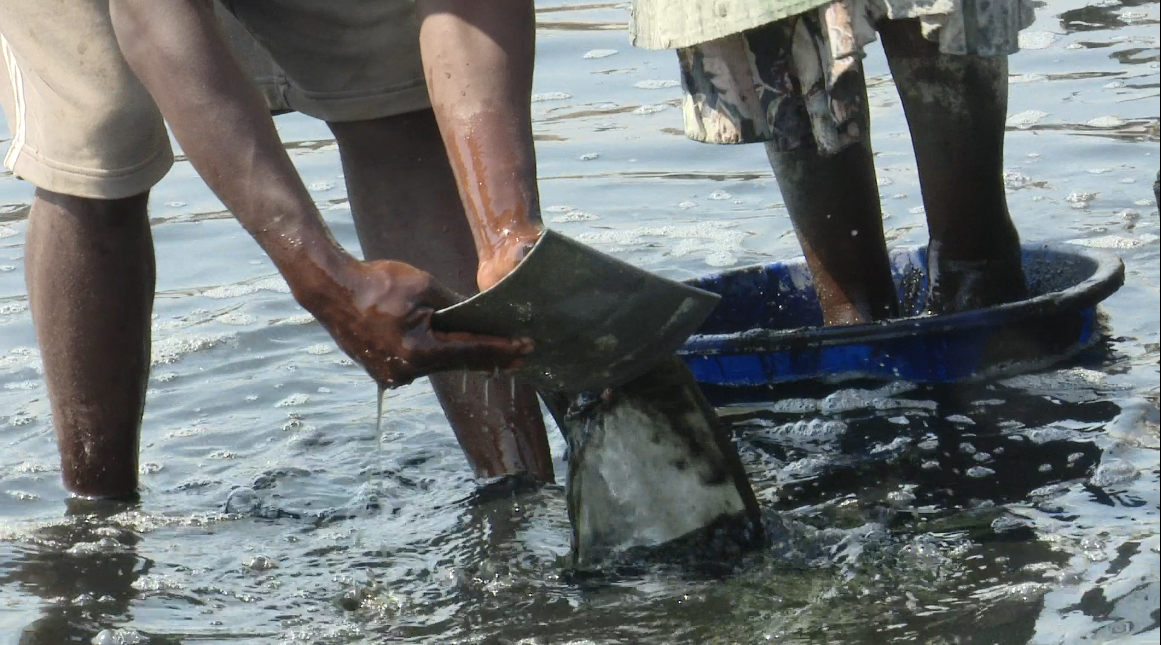Prime
Are private hospitals ready to treat Covid-19 patients?

Workers disinfect Mulago hospital isolation ward for Covid 19 patients on May 6. Government is still assessing the capacity of private facilities to treat the patients. PHOTO / KELVIN ATUHAIRE
What you need to know:
- Dr Charles Olaro, the director of clinical services at the ministry, told Daily Monitor that the accreditation process has taken sometime because it is meticulous, and preparation that works to ensure issues of prevention, control and patient care are all met.
- Many private hospitals still have few beds, ICU facilities, and ask government for subsidies to reduce the cost of treating Covid-19 patients.
The Ministry of Health is assessing the capacity of private hospitals interested in treating Covid-19 patients to relieve the already stretched government facilities.
About six private hospitals, including Medipal International, Case, Nsambya and Kibuli have expressed interest, but none had met the requirements. The ministry is yet to approve them.
The health facilities need an isolation unit, a bed capacity away from the regular patients, a high dependency unit with patient monitors and an intensive care facility with at least four beds, laboratory facilities and an X-ray.
Other requirements are trained staff for treating only Covid-19 patients, accommodation facilities and adequate protective gear.
Dr Dennis Kimalyo, the executive director of Uganda National Private Facilities Association, yesterday said very few private facilities meet the requirements.
“Only the big facilities can manage this, and they are few in Kampala. The biggest number is not yet ready. But are they ready to take them on since these facilities are used by other patients?
Taking on Covid-19 patients will mean restricting these facilities,” Dr Kimalyo said.
He asked government to offer financial help since managing Covid-19 is a very costly venture.
“Some patients may be ready to pay but the cost may be too high that they will need subsidised services. We are looking at modalities to offer affordable care to patients. Government should step in, and at some point, it will be inevitable for all facilities to take on Covid-19 patients. We have engaged government and they are yet to respond,” Dr Kimaly said.
The Director General for Health Services at the Ministry of Health, Dr Henry Mwebesa, said the ministry is willing to train staff in private hospitals, but did not mention financial support or partnerships.
Dr Kimalyo asked government to reconsider some requirements because there are cases that don’t need specialised care. The ministry, however, said when a private hospital takes on a patient, they should have facilities to handle them should they progress to a severe state.
“We don’t want a facility to admit asymptomatic cases, make money out of them and when they progress to severe, send them to Mulago hospital. That is why we are insisting you must have high dependency units and ICU.
If you are ready to take on these patients, you should take them all the way even when they get severe,” Dr Mwebesa said.
Ms Grace Ssali Kiwanuka, the executive director of Uganda Healthcare Federation, said many private facilities may not be open to offering the services because of stigma.
Dr Andrew Ssekitoleko, the executive director of Rubaga hospital, said unless other private hospitals come on board, it will be difficult because of the rising number of Covid cases.
“We have only 15 beds in our isolation unit, with high dependency capacity, and only one ICU patient. It can only work if we are all taking on patients. We can take on about 12 patients and two severe cases because the patients take a more resources,” Dr Ssekitoleko said.
“We have a team of about 25 doctors and nurses but once the numbers increase, that will be difficult. If someone is not trained, they will infect themselves.”
Dr Ssekitoleko said they cannot have experts retained exclusively for Covid because of the limited numbers of health workers.
He also called for proper protection and monitoring.
“We had a fund that enabled us to have PPE (personal protective equipment) for three months but we have been using those on suspects and we are able to run for about one and a half months after that, the cost will have to be transferred.
One wear can cost Shs150,000 for seeing a patient, then there is a nurse who has to see them. That is where we advocate some kind of subsidy, like supply of PPE,” Dr Ssekitoleko said.
Dr Peter Ntege, the head of International Hospital Kampala, said they have inadequate space.
“We have all the resources but we don’t have the space. We could admit maybe four or five patients. Once you say you are treating Covid-19, you need a Covid ICU far from the rest of the operations. We have a 10-bed ICU and it is for other patients,” Dr Ntege said.
Kibuli Muslim Hospital is also in a similar predicament.
“We have a facility with 16 beds, we are still looking for PPE for health workers, we have one ventilator but we need more and we are awaiting assistance from government, we need to recruit staff to be exclusively for Covid patients,” Mr Siraj Mbulambago, the hospital administrator, said.
“The ministry has already inspected our facility and we are at about 50 per cent. The willingness is there, but budgets are tight,” he added.
[email protected]




